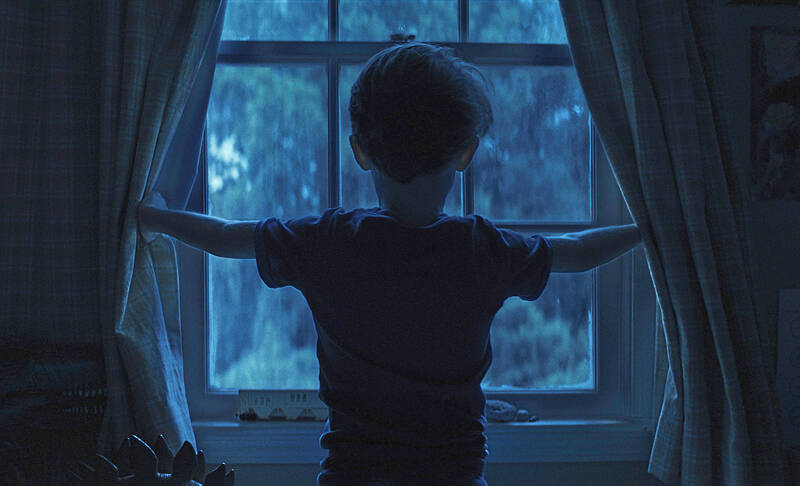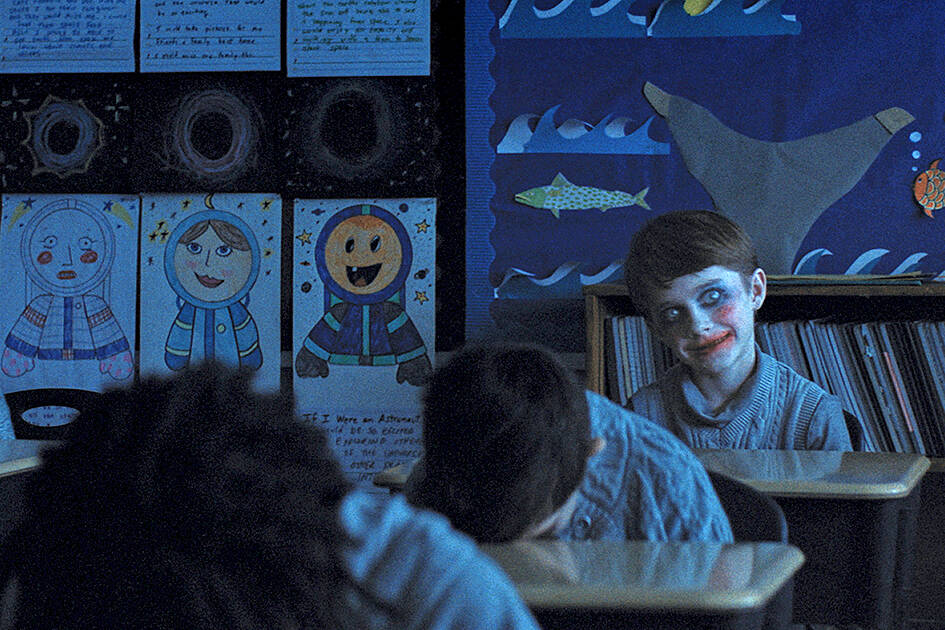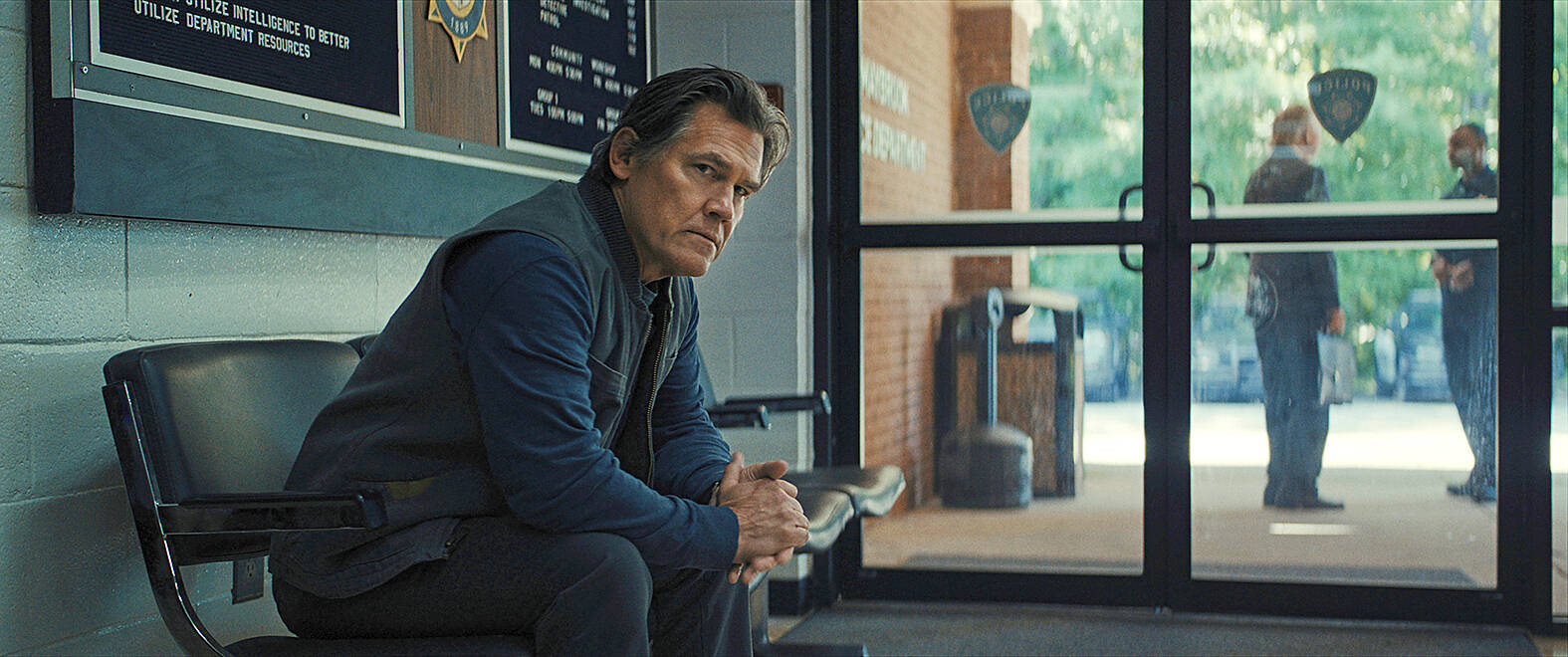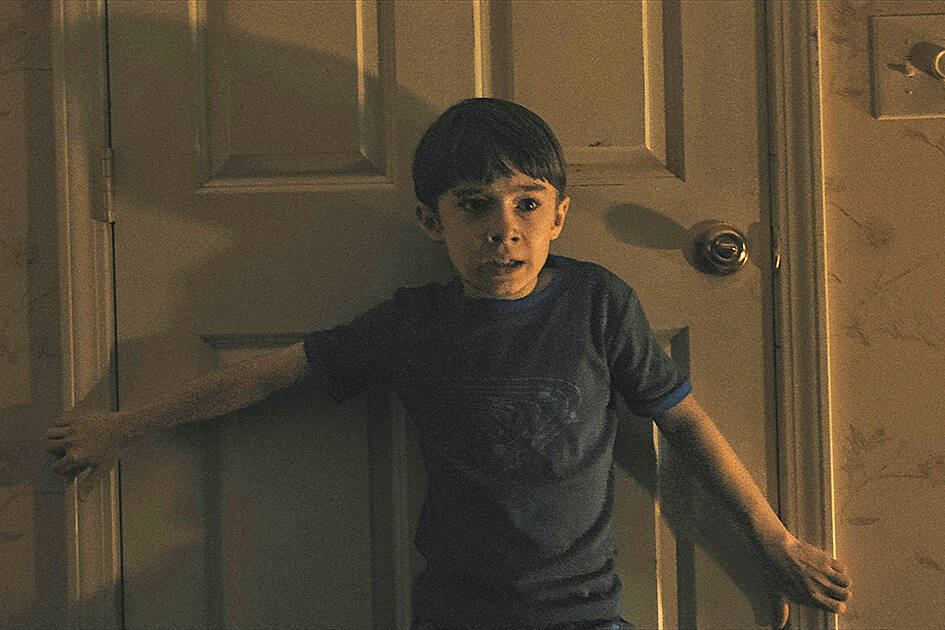An enduring image from the new movie Weapons comes early: The sight of elementary school students running out of their homes and onto the suburban grass, moving like flying birds with their arms out, to a song by George Harrison.
Except this is happening at night — at 2:17am, to be precise — and there’s no glee from the kids. Just running. And the Harrison song being played isn’t the cheerful Here Comes the Sun. It’s Beware the Darkness. Welcome back to another outing by director-writer Zach Cregger, a modern thriller master.
Weapons is his sophomore effort and it’s more ambitious than his first, Barbarian. It’s told in chapters from the perspective of various interweaving characters — like a horror version of Paul Thomas Anderson’s Magnolia — and explores the ripple effects from a tragic event. But it often lags and slackens on its way to a gruesome end, with a reliance on sorcery that seems like a cop out.

Photo: AP
“This is a true story,” says a child narrator at the start of the movie, only for that technique to disappear shortly afterward. “A lot of people die in a lot of weird ways.”
Indeed: There’s some fork stabbings, an assault with a vegetable peeler and one victim takes so many headbutts that his skull caves in.
The event at the movie’s heart is the disappearance of 17 third graders from a single class in the middle of the night in the leafy town of Maybrook, Illinois. Ring cameras catch them opening their front doors and rushing out, not to be seen again. Only one child from the class showed up the next day at school.

Photo: AP
Everyone is baffled and frustrated. Did the kids plan it together? Were they sent a coded message via a video game or social media? Why was one child from the class seemingly spared? And does the teacher know more than what she is letting on?
Julia Garner, who plays the teacher, offers us a fascinating, spiky character, prone to pity parties and self-righteous outbursts. She’s also seductive and manipulative and growing reliant on booze to cope with the suspicions leveled at her. At one point, someone scrawls the word “witch” on her Toyota. The town will soon know what that word really means.
Garner — who is doing double duty this summer as the Silver Surfer in Fantastic Four: First Steps, wow, quite a range — is warned to stay away from the case but refuses, doing her own stakeouts and trying to speak to the only surviving classmate.

Photo: AP
“We are the only ones left,” she says.
Cregger being Cregger, there are lots of misdirections, paranoia and an almost existential sense of humor, usually mocking horror movie conventions (and, in this case, the movie Willow.) In Weapons, he also nicely shows the quiet resilience of kids and their ability to face daily horrors and keep going, trying to help those they love despite creepy awfulness.
The upset parents are represented by Josh Brolin’s broken father, whose son was one of the 17 who fled. He sleeps in his son’s room, wracked by guilt that he couldn’t protect someone so dear. He soon will join forces with the teacher to uncover the secret of what made the children run.

Photo: AP
They will also collide into a local drug user/low-level criminal, played superbly by Austin Abrams, who’s bumbling, comic relief is welcome. Amy Madigan is unrecognizable and utterly mesmerizing as an oddball aunt of the surviving boy, a splendid Cary Christopher.
Weapons is best before the final third when we learn of an outside force that may have triggered all this misery. Cregger seemed to be on more solid footing mocking suburban life, showing the savagery below the mowed grass pleasantries, the quiet desperation inside marriages and the corruption of small town police departments.
If Barbarian came out of left field three years ago and heralded an exciting new voice in filmmaking, Weapons doesn’t disappoint but it doesn’t have the advantage of surprise. It will, at the very least, make you feel a little dread when the clock hits 2:17am.

Photo: AP

Aug. 4 to Aug. 10 When Coca-Cola finally pushed its way into Taiwan’s market in 1968, it allegedly vowed to wipe out its major domestic rival Hey Song within five years. But Hey Song, which began as a manual operation in a family cow shed in 1925, had proven its resilience, surviving numerous setbacks — including the loss of autonomy and nearly all its assets due to the Japanese colonial government’s wartime economic policy. By the 1960s, Hey Song had risen to the top of Taiwan’s beverage industry. This success was driven not only by president Chang Wen-chi’s

Last week, on the heels of the recall election that turned out so badly for Taiwan, came the news that US President Donald Trump had blocked the transit of President William Lai (賴清德) through the US on his way to Latin America. A few days later the international media reported that in June a scheduled visit by Minister of National Defense Wellington Koo (顧立雄) for high level meetings was canceled by the US after China’s President Xi Jinping (習近平) asked Trump to curb US engagement with Taiwan during a June phone call. The cancellation of Lai’s transit was a gaudy

From Godzilla’s fiery atomic breath to post-apocalyptic anime and harrowing depictions of radiation sickness, the influence of the nuclear bombings of Hiroshima and Nagasaki runs deep in Japanese popular culture. In the 80 years since the World War II attacks, stories of destruction and mutation have been fused with fears around natural disasters and, more recently, the Fukushima crisis. Classic manga and anime series Astro Boy is called “Mighty Atom” in Japanese, while city-leveling explosions loom large in other titles such as Akira, Neon Genesis Evangelion and Attack on Titan. “Living through tremendous pain” and overcoming trauma is a recurrent theme in Japan’s

As last month dawned, the Democratic Progressive Party (DPP) was in a good position. The recall campaigns had strong momentum, polling showed many Chinese Nationalist Party (KMT) lawmakers at risk of recall and even the KMT was bracing for losing seats while facing a tsunami of voter fraud investigations. Polling pointed to some of the recalls being a lock for victory. Though in most districts the majority was against recalling their lawmaker, among voters “definitely” planning to vote, there were double-digit margins in favor of recall in at least five districts, with three districts near or above 20 percent in